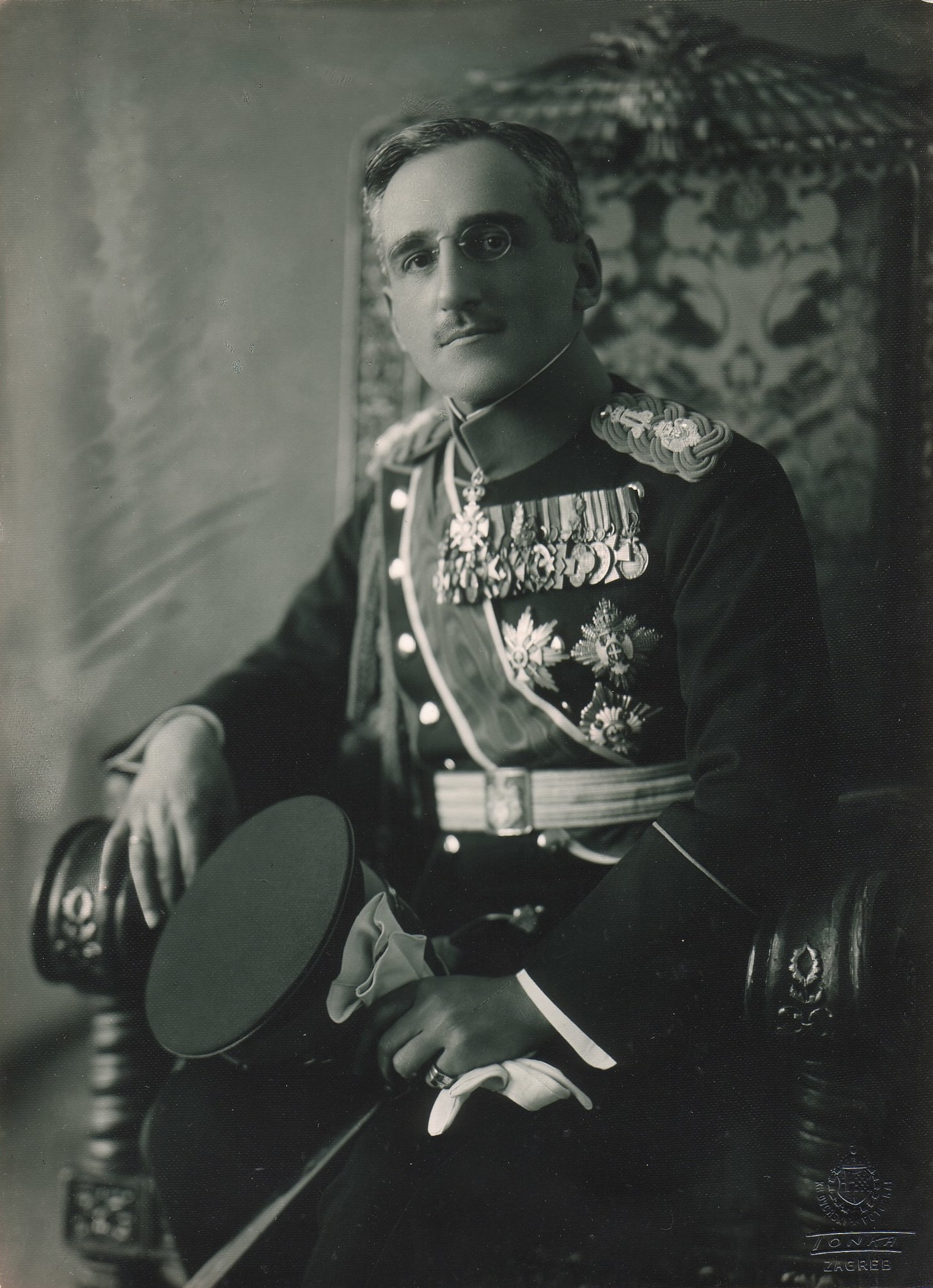

Yugoslavia 50 Dinara 1931
Front: King Alexander
On 1 December 1918, in a prearranged set piece, Alexander, as Regent, received a delegation of the People's Council of the State of Slovenes, Croats and Serbs, an address was read out by one of the delegation, and Alexander made an address in acceptance. This was considered to the birth of the Kingdom of Serbs, Croats and Slovenes. In 1921, on the death of his father, Alexander inherited the throne of the Kingdom of Serbs, Croats and Slovenes, which from its inception was colloquially known both in the Kingdom and the rest of Europe alike as Yugoslavia. On 6 January 1929, in response to the political crisis triggered by the murder of Stjepan Radić, King Alexander abolished the Constitution, prorogued the Parliament and introduced a personal dictatorship (the so-called "January 6 Dictatorship", Šestojanuarska diktatura). He also changed the name of the country to Kingdom of Yugoslavia and changed the internal divisions from the 33 oblasts to nine new banovinas on 3 October. In the same month, he tried to banish by decree the use of Serbian Cyrillic to promote the exclusive use of Latin alphabet in Yugoslavia. In 1931, Alexander decreed a new Constitution which transferred executive power to the King. Elections were to be by universal male suffrage. The provision for a secret ballot was dropped and pressure on public employees to vote for the governing party was to be a feature of all elections held under Alexander's constitution. Furthermore, the King would appoint half the upper house directly, and legislation could become law with the approval of one of the houses alone if it were also approved by the King. Read More
 Alexander I, King of Yugoslavia
Alexander I, King of Yugoslaviaprev. King of Serbs, Croats, and Slovenes
Information and Image Obtained From Wikipedia, the free encyclopedia
2 comments:
That is the banknote from Montenegro. The Banknotes of Kingdom of Yugoslavia with mark "VERIFICATO" were used in Montenegro as instrument of payment.
This banknote belongs to this serie:
http://www.banknote.ws/COLLECTION/countries/EUR/YUG/YUG.htm#ITALIAN%20OCCUPATION%20OF%20MONTENEGRO
Post a Comment